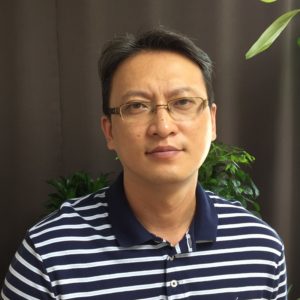 Lu Kou
Lu Kou
Director Of Undergraduate Studies, Assistant Professor
Office: 412 Kent Hall
Office Hours: TBD
Phone:
Email: lk2950@columbia.edu
Educational Background
BA: Peking University (2010)
MA: Harvard University (2012)
PhD: Harvard University (2018)
Classes Taught
EAAS UN3935 The Fantastic in Pre-Modern China
EAAS GU4031 History of Chinese Literature
Research Interests
As a medievalist and a scholar of premodern Chinese literature, Lu Kou’s research interests include medieval Chinese literature and culture, poetry and poetics, historiography, and comparative studies of China’s Middle Period and medieval Europe. He is currently at work on two book projects: War of Words: Courtly Exchange, Rhetoric, and Political Culture in Early Medieval China, which examines the “discursive battles” fought among rival states in China’s early medieval period and investigates how rhetoric constructed and contested political legitimacy in this age of multipolarity; and (tentatively titled) Locked Seal, Heart of Poetry: Bureaucracy and the Representation of Work in Medieval Chinese Poetry, 400-900 CE, which studies the dialectic between poetry and bureaucratic systems, between the lyrical and quotidian renderings of “work” in medieval poetry. Before joining the faculty at Columbia, he was Assistant Professor of Chinese at Bard College (2019-2022) and Visiting Assistant Professor at Williams College (2018-2019).
Selected Publications
“The Poetics and Politics of Space: Writing Imperial Visits of Private Estates in Early Tang Court Poetry.” The Nanyang Journal of Chinese Literature and Culture. 2023. Special issue on “court culture.”
“Audible Empire: Musical Orthodoxy and Spectacle in the Sui Dynasty.” Early Medieval China, vol. 28 (2022): pp. 73-96.
“Epistolary Exchange and Psychological Warfare: Tuoba Tao’s 拓跋燾 (408–452, r. 423–452) Letters to his Southern Audience.” Journal of Chinese Literature and Culture, 7.1 (2020): pp. 34-59.
[Chinese version:] “Shuxin zhong de junwang xingxiang yu xinli zhan: Tuoba Tao (408–452, r. 423–452) de guoshu he ta de nanfang duzhe” 書信中的君王形象與心理戰:拓跋燾(408–452)的國書和他的南方讀者. Lingnan xuebao 嶺南學報, 13 (2020): pp. 51-72.
 Seong Uk Kim
Seong Uk Kim
